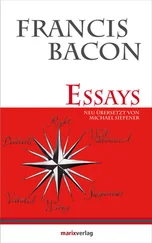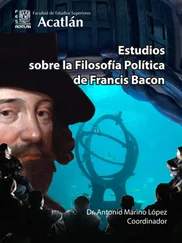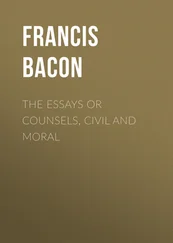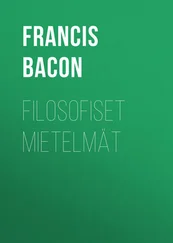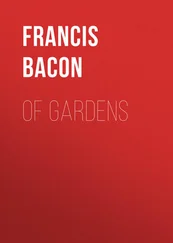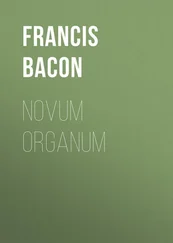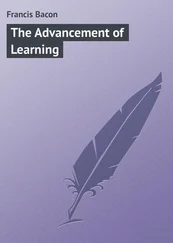Francis Bacon - Valerius Terminus
Здесь есть возможность читать онлайн «Francis Bacon - Valerius Terminus» — ознакомительный отрывок электронной книги совершенно бесплатно, а после прочтения отрывка купить полную версию. В некоторых случаях можно слушать аудио, скачать через торрент в формате fb2 и присутствует краткое содержание. Год выпуска: 0101, Жанр: foreign_antique, foreign_prose, на английском языке. Описание произведения, (предисловие) а так же отзывы посетителей доступны на портале библиотеки ЛибКат.
- Название:Valerius Terminus
- Автор:
- Жанр:
- Год:0101
- ISBN:нет данных
- Рейтинг книги:5 / 5. Голосов: 1
-
Избранное:Добавить в избранное
- Отзывы:
-
Ваша оценка:
- 100
- 1
- 2
- 3
- 4
- 5
Valerius Terminus: краткое содержание, описание и аннотация
Предлагаем к чтению аннотацию, описание, краткое содержание или предисловие (зависит от того, что написал сам автор книги «Valerius Terminus»). Если вы не нашли необходимую информацию о книге — напишите в комментариях, мы постараемся отыскать её.
Valerius Terminus — читать онлайн ознакомительный отрывок
Ниже представлен текст книги, разбитый по страницам. Система сохранения места последней прочитанной страницы, позволяет с удобством читать онлайн бесплатно книгу «Valerius Terminus», без необходимости каждый раз заново искать на чём Вы остановились. Поставьте закладку, и сможете в любой момент перейти на страницу, на которой закончили чтение.
Интервал:
Закладка:
But howsoever that be, there are besides the authorities of Scriptures before recited, two reasons of exceeding great weight and force why religion should dearly protect all increase of natural knowledge: the one, because it leadeth to the greater exaltation of the glory of God; for as the Psalms and other Scriptures do often invite us to consider and to magnify the great and wonderful works of God, so if we should rest only in the contemplation of those shews which first offer themselves to our senses, we should do a like injury to the majesty of God, as if we should judge of the store of some excellent jeweler by that only which is set out to the street in his shop. The other reason is, because it is a singular help and a preservative against unbelief and error; for, saith our Saviour, YOU ERR, NOT KNOWING THE SCRIPTURES NOR THE POWER OF GOD; laying before us two books or volumes to study if we will be secured from error; first the Scriptures revealing the will of God, and then the creatures expressing his power; for that latter book will certify us that nothing which the first teacheth shall be thought impossible. And most sure it is, and a true conclusion of experience, that a little natural philosophy inclineth the mind to atheism, but a further proceeding bringeth the mind back to religion.
To conclude then, let no man presume to check the liberality of God's gifts, who, as was said, HATH SET THE WORLD IN MAN'S HEART. So as whatsoever is not God but parcel of the world, he hath fitted it to the comprehension of man's mind, if man will open and dilate the powers of his understanding as he may.
But yet evermore it must be remembered that the least part of knowledge passed to man by this so large a charter from God must be subject to that use for which God hath granted it; which is the benefit and relief of the state and society of man; for otherwise all manner of knowledge becometh malign and serpentine, and therefore as carrying the quality of the serpent's sting and malice it maketh the mind of man to swell; as the Scripture saith excellently, knowledge bloweth up, but charity buildeth up. And again the same author doth notably disavow both power and knowledge such as is not dedicated to goodness or love, for saith he, IF I HAVE ALL FAITH SO AS I COULD REMOVE MOUNTAINS, (there is power active,) IF I RENDER MY BODY TO THE FIRE, (there is power passive,) IF I SPEAK WITH THE TONGUES OF MEN AND ANGELS, (there is knowledge, for language is but the conveyance of knowledge,) ALL WERE NOTHING.
And therefore it is not the pleasure of curiosity, nor the quiet of resolution, nor the raising of the spirit, nor victory of wit, nor faculty of speech, nor lucre of profession, nor ambition of honour or fame, nor inablement for business, that are the true ends of knowledge; some of these being more worthy than other, though all inferior and degenerate: but it is a restitution and reinvesting (in great part) of man to the sovereignty and power (for whensoever he shall be able to call the creatures by their true names he shall again command them) which he had in his first state of creation. And to speak plainly and clearly, it is a discovery of all operations and possibilities of operations from immortality (if it were possible) to the meanest mechanical practice. And therefore knowledge that tendeth but to satisfaction is but as a courtesan, which is for pleasure and not for fruit or generation. And knowledge that tendeth to profit or profession or glory is but as the golden ball thrown before Atalanta, which while she goeth aside and stoopeth to take up she hindereth the race. And knowledge referred to some particular point of use is but as Harmodius which putteth down one tyrant, and not like Hercules who did perambulate the world to suppress tyrants and giants and monsters in every part. It is true, that in two points the curse is peremptory and not to be removed; the one that vanity must be the end in all human effects, eternity being resumed, though the revolutions and periods may be delayed. The other that the consent of the creature being now turned into reluctation, this power cannot otherwise be exercised and administered but with labour, as well in inventing as in executing; yet nevertheless chiefly that labour and travel which is described by the sweat of the brows more than of the body; that is such travel as is joined with the working and discursion of the spirits in the brain: for as Salomon saith excellently, THE FOOL PUTTETH TO MORE STRENGTH, BUT THE WISE MAN CONSIDERETH WHICH WAY, signifying the election of the mean to be more material than the multiplication of endeavour. It is true also that there is a limitation rather potential than actual, which is when the effect is possible, but the time or place yieldeth not the matter or basis whereupon man should work. But notwithstanding these precincts and bounds, let it be believed, and appeal thereof made to Time, (with renunciation nevertheless to all the vain and abusing promises of Alchemists and Magicians, and such like light, idle, ignorant, credulous, and fantastical wits and sects,) that the new-found world of land was not greater addition to the ancient continent than there remaineth at this day a world of inventions and sciences unknown, having respect to those that are known, with this difference that the ancient regions of knowledge will seem as barbarous compared with the new, as the new regions of people seem barbarous compared to many of the old.
The dignity of this end (of endowment of man's life with new commodities) appeareth by the estimation that antiquity made of such as guided thereunto. For whereas founders of states, lawgivers, extirpers of tyrants, fathers of the people, were honoured but with the titles of Worthies or Demigods, inventors were ever consecrated amongst the Gods themselves. And if the ordinary ambitions of men lead them to seek the amplification of their own power in their countries, and a better ambition than that hath moved men to seek the amplification of the power of their own countries amongst other nations, better again and more worthy must that aspiring be which seeketh the amplification of the power and kingdom of mankind over the world; the rather because the other two prosecutions are ever culpable of much perturbation and injustice; but this is a work truly divine, which cometh IN AURA LENI without noise or observation.
The access also to this work hath been by that port or passage, which the divine Majesty (who is unchangeabIe in his ways) doth infallibly continue and observe; that is the felicity wherewith he hath blessed an humility of mind, such as rather laboureth to spell and so by degrees to read in the volumes of his creatures, than to solicit and urge and as it were to invocate a man's own spirit to divine and give oracles unto him. For as in the inquiry of divine truth, the pride of man hath ever inclined to leave the oracles of God's word and to vanish in the mixture of their own inventions; so in the self-same manner, in inquisition of nature they have ever left the oracles of God's works, and adored the deceiving and deformed imagery which the unequal mirrors of their own minds have represented unto them. Nay it is a point fit and necessary in the front and beginning of this work without hesitation or reservation to be professed, that it is no less true in this human kingdom of knowledge than in God's kingdom of heaven, that no man shall enter into it EXCEPT HE BECOME FIRST AS A LITTLE CHILD.
Читать дальшеИнтервал:
Закладка:
Похожие книги на «Valerius Terminus»
Представляем Вашему вниманию похожие книги на «Valerius Terminus» списком для выбора. Мы отобрали схожую по названию и смыслу литературу в надежде предоставить читателям больше вариантов отыскать новые, интересные, ещё непрочитанные произведения.
Обсуждение, отзывы о книге «Valerius Terminus» и просто собственные мнения читателей. Оставьте ваши комментарии, напишите, что Вы думаете о произведении, его смысле или главных героях. Укажите что конкретно понравилось, а что нет, и почему Вы так считаете.

